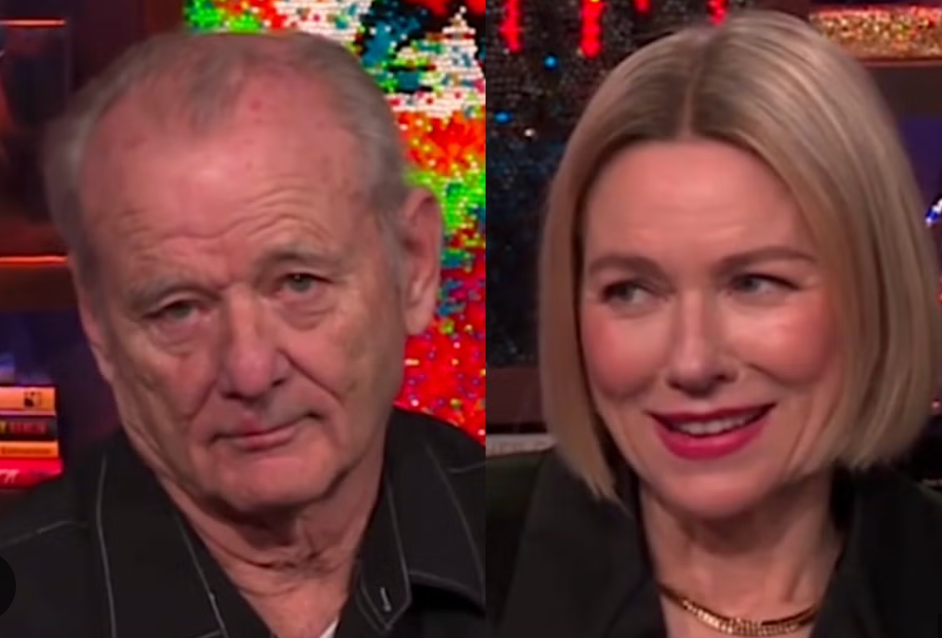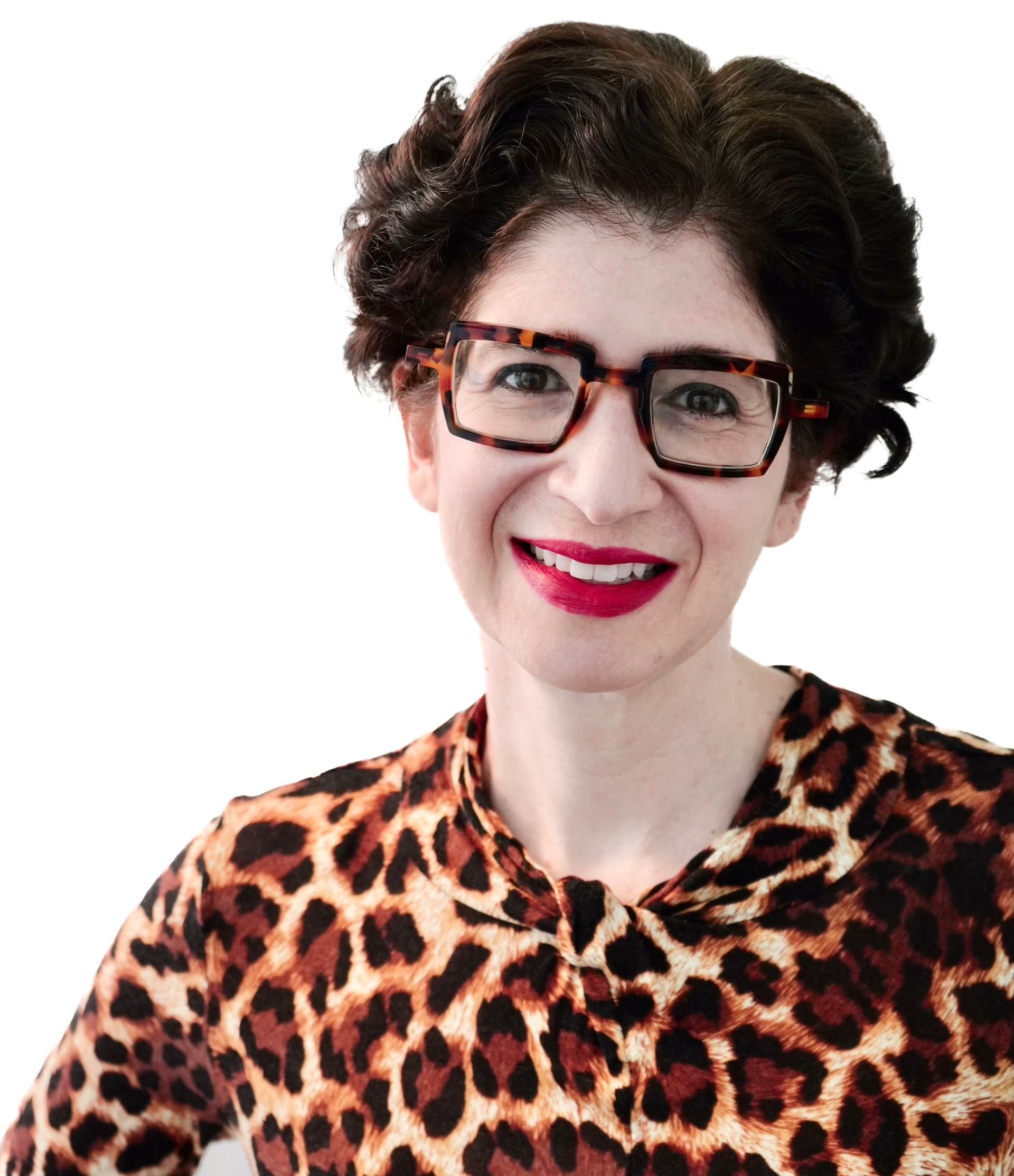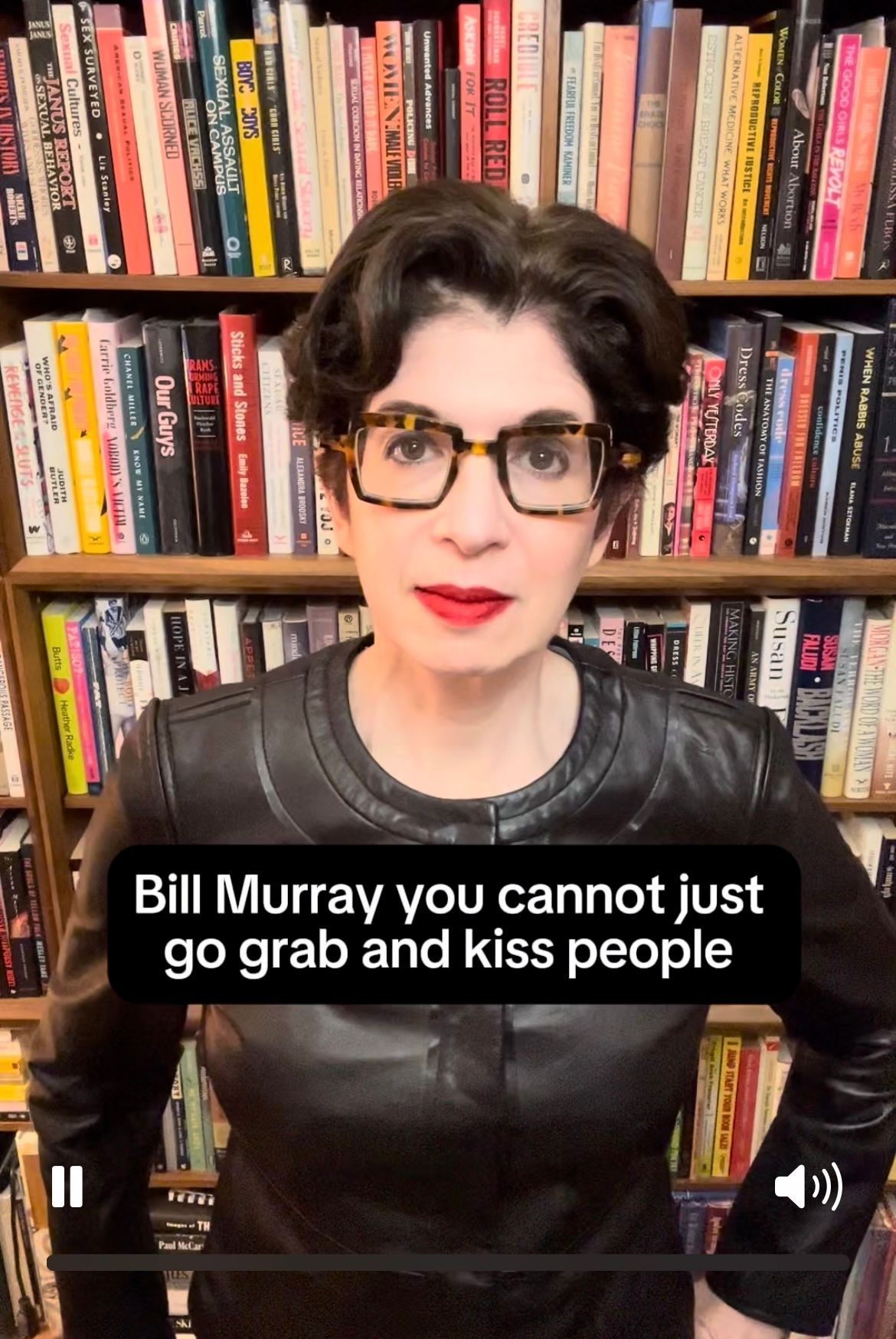Slut-shaming matters because when people are dismissed as sluts, hoes, and thots, they are denied care and compassion as human beings and in a variety of situations, including when they are sexually harassed, sexually assaulted, victimized by image-based sexual abuse ("revenge porn" and "deepfakes"), and need an abortion.
The Latest on Slut-Shaming + Bodily Autonomy
April 21, 2025
Earlier this month, actors Naomi Watts and Bill Murray appeared on a talk show to promote their movie “The Friend.” Watts was asked about the best movie or TV kiss of her career. Before she had an opportunity to respond, Murray grabbed her face, yanked her head back, and kissed her.
Watts appeared shocked, placed her face in her hands, and then laughed. Murray gave the camera a thumbs-up. The host, Andy Cohen, said the moment was "so good."
Let me be clear that this moment was the opposite of good. It doesn’t matter how great an actor Bill Murray may be (Groundhog Day and
Lost in Translation
are two of my favorite movies). To my mind, he committed an act of nonconsensual sexualization, and I would go so far as to say that it may have been an assault.

I’ve been talking with young women about their experiences of nonconsensual sexualization, including assault, for my forthcoming book, Sexy Selfie Nation: Standing Up for Yourself in Today’s Toxic, Sexist Culture (coming out next month). They are fed up with being sexualized against their will, whether from having teachers look them up and down and deciding whether or not their spaghetti straps are noncompliant with the school dress code or being grabbed by guys as they walk in public spaces.
USA Today reached out to me to ask what I thought, and I told the excellent reporter Alyssa Goldberg that many people who watched the TV clip don’t recognize that what Murray did may have been an act of assault because they do not know what assault looks like. Most sexual assault is not an act of a stranger jumping out at the victim at night. It is most often done by someone you know and trust. And because acts of assault are ubiquitous and normalized, they hide in plain sight, and perpetrators often are not held accountable.
Okay, so why did Watts laugh along? Victims of assault don’t necessarily react the way we think they’re “supposed to.” I don’t truly know why Watts laughed along, but I do know that women are pawed without consent so regularly that we develop coping mechanisms, and laughter is one of them.
Laughing along can make sense for at least three reasons:
- It signals, “Hey, I’m not a humorless bitch! I’m a fun person, and I know how to take a joke. I’m safe to hang out with, and I won’t tell HR or the police on you.”
- It’s exhausting telling guys to stop touching us without asking first. Laughing along can feel easier emotionally.
- We get so accustomed to being sexualized against our will that sometimes we may stop noticing how inappropriate and disgusting this behavior is—like the proverbial frog placed in warm water who boils to death as the water becomes hotter because the frog becomes used to the heat.
Besides, Watts probably was shocked and powerless. After all, she was grabbed in front of a huge audience. She had to make a snap decision. We shouldn’t judge or blame her for laughing along, and we shouldn’t assume she laughed because she didn’t care or didn’t mind being grabbed.
For viewers who have experienced assault, watching Murray could elicit renewed feelings of helplessness and anxiety. But I worry about other viewers, too. Because the host legitimated Murray’s behavior, and he has not been held accountable, viewers may believe that what he did was acceptable. And that’s why, even though Murray is an extremely talented actor, it’s on all of us to call him out.
If Murray had asked Watts if he could kiss her on live TV, and she had said yes, the result would have been a fantastic moment: comical, respectful, and educational, teaching a lesson about consent. And if she had said no, the nonconsensual act would have been averted. But Murray blew it. We ended up with a TV moment that was worse than cringe. It was potentially borderline criminal.
Should schools expel students for racy social media posts?
In my previous newsletter, I wrote about Kimberly Diei, who had been expelled by the University of Tennessee because, the administration claimed, her personal social media posts were "vulgar" and "crude." I asked readers if universities should be permitted to dictate how students represent themselves on their personal social media. One reader wrote in, "no!!! a school SHOULD NOT!! like, expel the nazi students. there are bigger issues (like students that are openly white supremacists!). (not referencing a specific instance at U of Tennessee but rather my general experience of having gone to a southern PWI state school)."
“Boys will be boys, and girls will be sluts.” — Leora Tanenbaum
Want to learn the difference between a compliment and a creepy comment?

